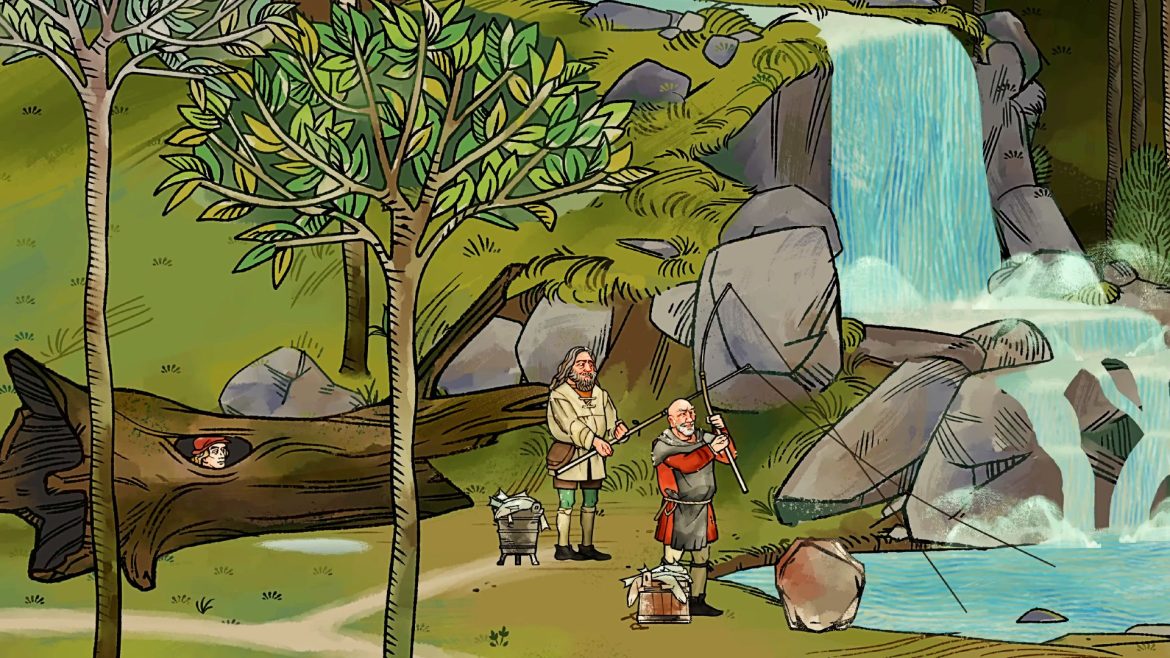Welcome back readers.
Kaile just posted our most recent Patreon newsletter update–another good reason to check our page out and maybe even give us some support if you have a few bucks per month to spare! As always, we appreciate it!
This Week in Videogame Blogging is a roundup highlighting the most important critical writing on games from the past seven days.
Ex-Box
We’re starting this week with a selection of coverage around the recent announcement of a BDS boycott campaign against Xbox hardware, software, and services, aiming to put public pressure on Microsoft to end their partnership in the IOFs genocide in Gaza.
- “Boycotting Microsoft by canceling your Xbox Game Pass subscription will only hurt the devs” | No Escape
Kaile Hultner debunks the idea that a boycott effects any material harm on game developers when it’s the unaccountable whims of executives, not sales figures, that ultimately determines their livelihoods. - Why BDS Is Calling for an Xbox Boycott | Paste
Grace Benfell outlines why the conditions of the BDS Xbox boycott have aligned for its success. - Games Media Can’t Ignore BDS Xbox Boycott | Aftermath
Autumn Wright lays out the responsibilities of the games journalist, living as they do under the yokes of authoritarian governance and wage capitalism, to help bring about a just world (Further Reading – Hippolyte Caubet on the industry’s longstanding complicity in the dehumanization of Palestinian and Arab people and nations).
“Games journalists and critics are writers of and within empire. Therefore we must make the conditions for revolution inevitable, and we must see the liberation of the Palestinian people within our lifetime.”
Large Languid Models
Next we’re featuring two different modes of criticism–interview and narrative–regarding the encroachment of large language models upon games and the industry.
- ‘An Overwhelmingly Negative And Demoralizing Force’: What It’s Like Working For A Company That’s Forcing AI On Its Developers | Aftermath
Luke Plunkett talks with a bunch of game developers about the encroachment of LLMs upon their work and the managerial empty-headedness that enables it. - The Day Cortana Died | Gamers with Glasses
Nate Schmidt eulogizes a character emblematic of a more humane era and attitude of AI (Further Reading – Caroline Delbert’s piece last week on robot and AI characters in games and media).
“Cortana, for all the things she wasn’t, stands today as an avatar for a relationship between humans and AI that could have been a little more beneficial for all parties, and has now been lost irremediably to the sands of time.”
Historical Narrative
This next section is partially about Pentiment but more broadly it’s about the mutability of history, truth, and our experiential realities.
- Where in the World Is William of Baskerville? | Unwinnable
Maddi Chilton compares Pentiment‘s treatment of the narrative of facts and the detective genre to that of its literary forebear, Umberto Eco’s The Name of the Rose. - Letting the Days Go By: The Historical Horrors of Pentiment | Unwinnable
Emma Kostopolus probes the notion of truth as a malleable sociopolitical reality in Pentiment. - Nostalgia² | Unwinnable
Phoenix Simms muses on the spatiotemporal interplay between the game worlds we encode in an ever-slipping past and inhabit in an ever-shifting present (Further Reading – Alli on the exploitation of nostalgia in the retro games hobby).
“I think what I’m trying to get at is that nostalgia can be fantastical and terrifying at once. It’s a force that can help people orient how they want to enact the agencies they have learned how to mimic from games they have attuned to.”
Critical Chaser
This piece we’re closing out with will nourish the soul (in a non-denominational way…?).
- The Politics, Theology, And Hype Behind The First Gamer Saint | Aftermath
Riley MacLeod sits down with Shane Liesegang to unpack the theology and humanity of the “gamer saint.”
“I’ll admit that, despite my education in theology, Acutis’ cause is the first time I’ve been inspired to learn more about how sainthood works, in an effort to understand why him instead of people I’d personally imagine more deserving. (Out of respect for all of your time, I’ve cut how frequently I demanded Liesegang explain why Acutis but not Dorothy Day, whom he reminded me didn’t want to be called a saint.) And talking to someone on the “inside” of the Church showed me that, even if there is something a bit eye-rolling about a lot of this, Acutis can also remind people of the sanctity of the everyday, where a religious life can live alongside a conscious approach to secular hobbies like video games.”
Subscribe
Critical Distance is community-supported. Our readers support us from as little as one dollar a month. Would you consider joining them?
Contribute
Have you read, seen, heard or otherwise experienced something new that made you think about games differently? Send it in!


